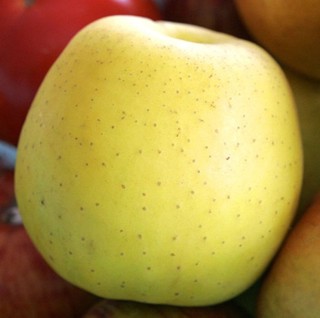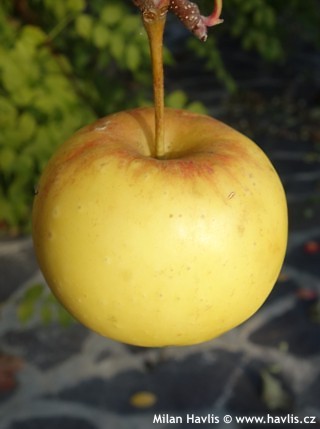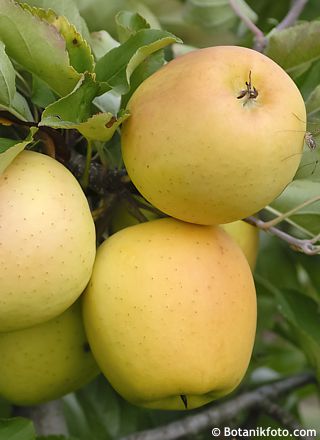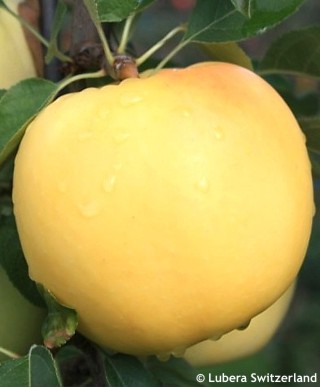
malus domestica 'GOLDEN DELICIOUS' apple tree - late


Golden Delicious is a favourite apple brand. It comes from the USA, 1890. The fruit is sweet, juicy and crisp, of golden yellow to greeny-yellow colour. Its size is dependent on soil fertility. The fruit can be very large.
It is usually trouble-free as far as late frosts and is disease resistant. The fruit ripens at the end of October. Its big advantage is excellent storing – under good conditions it can be kept nice and tasty until spring or early summer the following year. It is self-fertile and works as a good pollinator for others. Pruning is necessary for heavy crop, and also advisable for keeping the tree smaller.
It is very hardy but needs a long summer with plenty of direct sunlight for the fruit to ripen well. It benefits from balanced fertilizing – fruit is larger and matures more reliably.
Last update 11-03-2008
Goods are shipped all over Europe. For Russia and U.K. and for further details please read about SHIPPING OPTIONS HERE.
Are you interested in a serious discount for orders NOV-FEB? Check your options here.
THE PRICES INCLUDE VAT of 15%. For quick conversion you can use 1 CZK = approx. 0.04 EUR
- STANDARD QUALITY - Plants of this group are 1st class quality with number of branches and overall density adequate to their size and age, considering they were container grown.
- DE LUXE QUALITY - This label guarantees a luxurious quality of manually selected plants that, compared to their height and age, are exceptionally dense and beautiful.
- EXTRA - These plants are usually mature and bigger specimens with exceptional overall appearance.
- STANDARD (as described in the plant form) means a tree with a trunk of 190-210 cm and a crown at the top, unless specified differently. The commercial size for trees is their girth measured in the height of 1m from ground.
- HOBBY - These plants are of the same quality as our standard-quality plants but younger and therefore cheaper.
- SHRUB - a woody plant with branches growing bushy from the ground level.
- HALF-STANDARD or MINI-STANDARD - a small tree with shorter trunk, its size is usually specified.
- FEATHERED - These are trees with branches growing already from the base of the trunk and up along the stem.
- GRASSES and PERENNIALS - Sizes given usually read the diameter of the pot or the clump, as specified.




































